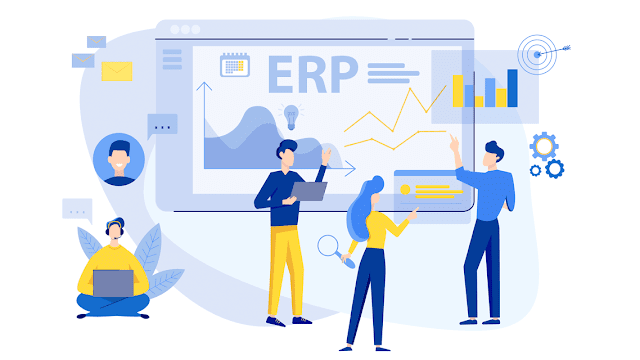ERP & CRM Integration: How To Make The Most Of It In 2022?
It is imperative for businesses undergoing digital transformation to have greater visibility and control over their operations. Investing in technology such as enterprise resource planning (ERP) and customer relationship management (CRM) software works best when they operate together. ERP and CRM integration is on many IT professionals' minds.
Today, we'll examine how erp and crm integration may help businesses run more efficiently.
What are CRM and ERP?
Before we get into the positives of system integration, let's go through the foundational pillars of CRM and ERP.
Customer Relationship Management - In a word, CRM encourages consumer involvement. It allows businesses to consolidate all of their accounts into a single spot. This gives a 360-degree picture of the customer lifecycle, ensuring that personnel is constantly aware of where each client is in operation. The crm system data also help workers provide more personalized care to each account. In-depth consumer insight provides data on behavior, preferences, and other essential characteristics.
Enterprise Resource Planning - In contrast, an ERP system simplifies a company's core business procedures. Accountants, for instance, may digitize many of their manual, spreadsheet-based activities, freeing them up to focus on other essential tasks. Another example of an erp system is human resources. Human resource professionals may automate a component of the onboarding process, reducing paperwork and allowing new employees to start work sooner.
Can Your CRM be Integrated with Your ERP?
The answer is yes, in essence!
An ERP manages business processes on the back end, while a CRM handles customer interactions on the front end. That's why it's essential to integrate the two systems for a complete picture of the customer's purchase history and other financial information.
Unleash how we connect technology & people here with tailored erp software solutions!
Benefits of CRM and ERP Data Integration
1. Automated Account-Based Processes - Companies may automate core procedures that drive account-based operations by merging ERP and CRM. Orders are processed faster, inventory is easier to manage, and income is recognized sooner. Incorporating erp software services with CRM also reduces the possibility of data mistakes. Businesses have a comprehensive picture of all client data, including order history, supply chain details, and financial data.
2. Improved Reporting and Analytics - Rigorous data reporting enables businesses to reliably forecast what will happen based on recent customer behavior, allowing them to keep abreast of trends. When CRM and erp software operate together, businesses may gain more significant insights into how each client engages with their company.
3. Enhanced Sales Functionality - Customers want companies to understand their preferences and likes before they disclose them. Fortunately, sales teams can now identify where an order is in the supply chain. Integrating crm software and ERP may instantly offer specific insights if a client requests a delivery update or details on lead product times.
4. Easier Cross-Department Collaboration - All official users can access a centrally shared platform with integrated CRM and ERP applications. This makes it easier for employees to collaborate and achieve their common goals. Even if someone modifies the data, it is updated globally. It also enhances staff morale by reducing communication failures and operational bottlenecks.
In Summation,
The advantages of integrating ERP and CRM data are numerous. Businesses may improve the consumer experience by incorporating these systems. If you currently have a CRM system, consider adding an ERP platform to grow your operations. Similarly, a CRM system might be an excellent complement to an existing enterprise resource planning system.
Learn how Connected IT Consulting enables ERP integration for leading enterprises worldwide. Don't hesitate to contact our erp consulting experts for an immediate consultation.
To learn more, get in touch with us instantly.
Business Process Mapping
ERP Project Management
ERP consulting
Small Business ERP




Comments
Post a Comment